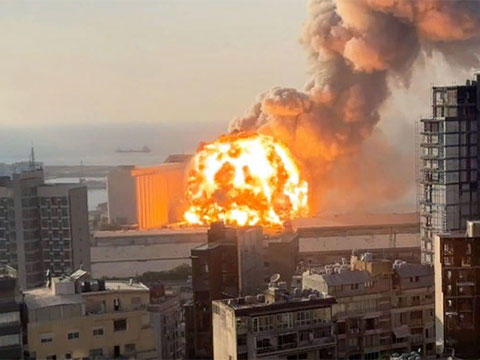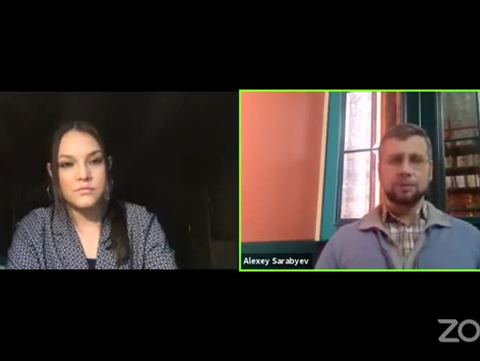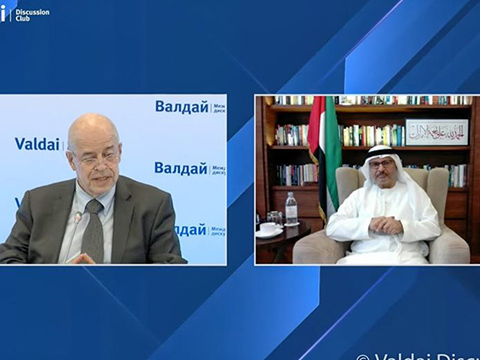Departments
Center of Arab and Islamic Studies
The Center’s structure, mission and methods of academic work are based on two main principles:
- Combination of practical and fundamental research;
- Interdisciplinary and comprehensive approaches in every research project, combined with increasing diversity of academic spheres.
The first principle outlines three main levels of our research: investigation of the current situation to provide the Russian government and society with real-time analytics; middle-level research which structures the results of investigation, includes them into wider historical context and gives them theoretical and methodical depth; fundamental research which reveals the most basic principles underlying current processes and events, analyses them as phenomena of long-time historical prospect.
As resources are limited, the variety of issues is defined by the first level – practical necessity, and reaching the fundamental level becomes the most crucial objective of our work. Pragmatism and fundamentality are key words defining the Center’s research.
Topics and aspects we cover
Principles of interdisciplinary comprehensive academic work and scholarly traditions outline the field of the Center’s research, which can be divided into 5 major aspects: politics, society, economy, humanities and Islamic studies. All of them are investigated both from historical and from phenomenological standpoint. Currently we are working to add cultural studies into our scope.
Our Center works on three main research topics within the framework of these 5 aspects.
- Tradition, transformation and revolution in Arab Muslim Civilization.
The upper level of research here is aimed at constant monitoring of political and cultural life, social processes and economic development in the Arab World. Problems of religion in modern Muslim-Arab communities are also included here. At the middle level, we look into the ways and laws of transformation in the political systems of Arab nations, problems of social and economic modernization, social relationships and public opinion in Arab Muslim cultures. The profound level discusses concepts of authority, society and state in the Arab World, interpretation of Islamic scriptures and their implementation in politics, etc. - Unity and diversity of Arab Muslim Civilization.
The upper level of research covers current problems of regional relationships in the Arab World, foreign policy of particular nations, regional unions and organizations, regional and country-specific aspects of economic development, etc. The middle level deals with regional development and security, inter-regional connections in the Arab World; historical comparisons, political, social and economic history of particular countries, their economic diversity; different forms of Islamic practices. Fundamentally, investigating the problem of unity and diversity in Arab Muslim culture means defining its basic and auxiliary elements. - Russia, Arab World, Islam.
At the upper level this topic deals with real-time analysis of Russia’s relationships with different Arab countries, regional organizations and unions. The middle level regards the history of bilateral relationships, the role of Arab countries in Russia’s foreign policy (and vice versa), and the mutual influence of Russian and Arab Muslim cultures. The fundamental research deals with comparing the historical developments the two civilizations are undergoing.
Due to the Center’s principle of pragmatism, this topic generally defines the approaches for two other ones. Works based on all of the topics use annotated translations of the most significant Arab Muslim literary writings used as sources.
The Center’s structure, forms of work and presentation of results
As research should be comprehensive and interdisciplinary while Arab studies are becoming more diverse, the main form of work in our Center is collective projects, conducted by small groups of researchers within general academic topics.
Because the Center should be integrated into the world academic community, international projects conducted together with our Middle Eastern partners are developing rapidly. Moreover, to make our research more profound, we are intensifying our work on the ground in Arab countries.
Interim results of project groups’ work are reported during the regular seminars. Authors discuss their individual achievements within the permanently functioning methodological seminar. Moreover, constant monitoring of the Arab World’s development requires regular country reviews.
We invite not only our colleagues, but also university and postgraduate students to our methodological seminars and country review presentations to allow the Arabist community of Moscow to gather gradually around the Center.
The results of collective research on every topic are presented in several formats simultaneously.
The upper-level analysis involves the preparation of real-time reports (analytical notes, policy briefs, etc.) for government institutions, public organizations and private companies.
Another form is analytical reports, published in both Russian and English to help the Center to integrate into the world academic community. As experience has shown, this model of work has an important function of cultural sharing; it is demanded by the international expert community and the civil society, state authorities and business people.
The most fundamental form of presentation is collective monographs, which authors create in close cooperation to reflect all three levels of research.
Our Center cooperates and coordinates its academic work with numerous scholarly institutions – in Moscow, all around Russia and even in some post-Soviet countries.
A large group of our Leading Researchers regularly cooperates with Russian and international media, promptly reacts to critical events in the Arab World, especially since the Arab Spring of 2011.

















